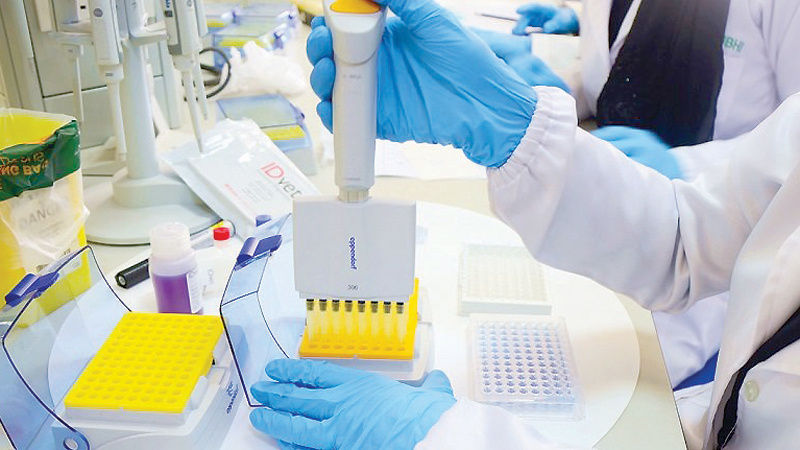

With only a few days left for Eid al Adha celebrations, 6,100 samples of goats and sheep were collected from all the governorates by the Ministry of Agriculture and Fisheries. “To prevent the risk of diseases, the authorities want to ensure a safe and healthy Eid sacrifice,” a statement from the ministry said.
For this purpose, specialists of the Animal Health Research Centre of the General Directorate of Agricultural and Animal Research conducted a laboratory examination and analysis of 6,100 samples of goats and sheep.
This was done under the Animal and Common Disease Control Project funded by the Development Fund Agriculture and Fisheries. The study aims at conducting a serological survey of Rift Valley Fever (RVF) and Neosporosis disease due to their seriousness in public health and the heavy losses in livestock as well as to clarify the reality of the disease in the Sultanate. RVF is a viral zoonosis that primarily affects animals but also has the capacity to infect humans. Infection can cause severe disease in both animals and humans.
The disease also results in significant economic losses due to death and abortion among RVF-infected livestock.
In large animals, such as sheep and calves, they range from 20 to 70 per cent, while in cattle and goats it is less than 10 per cent. Mosquitoes are the main carriers of this disease. “Because of the spread of the disease in neighbouring countries, this poses a direct threat to the livestock in the Sultanate, which requires the need to take precautionary measures to prevent the entry of the disease,” said the statement.
Neosporosis is a parasitic disease caused by the infection of micro-parasites and is a major cause of abortion of cows around the world. The effects of these diseases are not limited to the death of animals and the threat to public health, but to the massive execution of them across geographical boundaries, leading to the loss of millions of animals and the cost of large economic costs.
The project contributes to the maintenance of public health through the early detection of animal and common diseases and the adoption of the best means and measures for effective control.
Through the expected results, the survey will contribute to the development of control strategies for the disease and to provide necessary preventive measures and recommendations for educators through their marketing of local animal products free from disease.
Oman Observer is now on the WhatsApp channel. Click here



